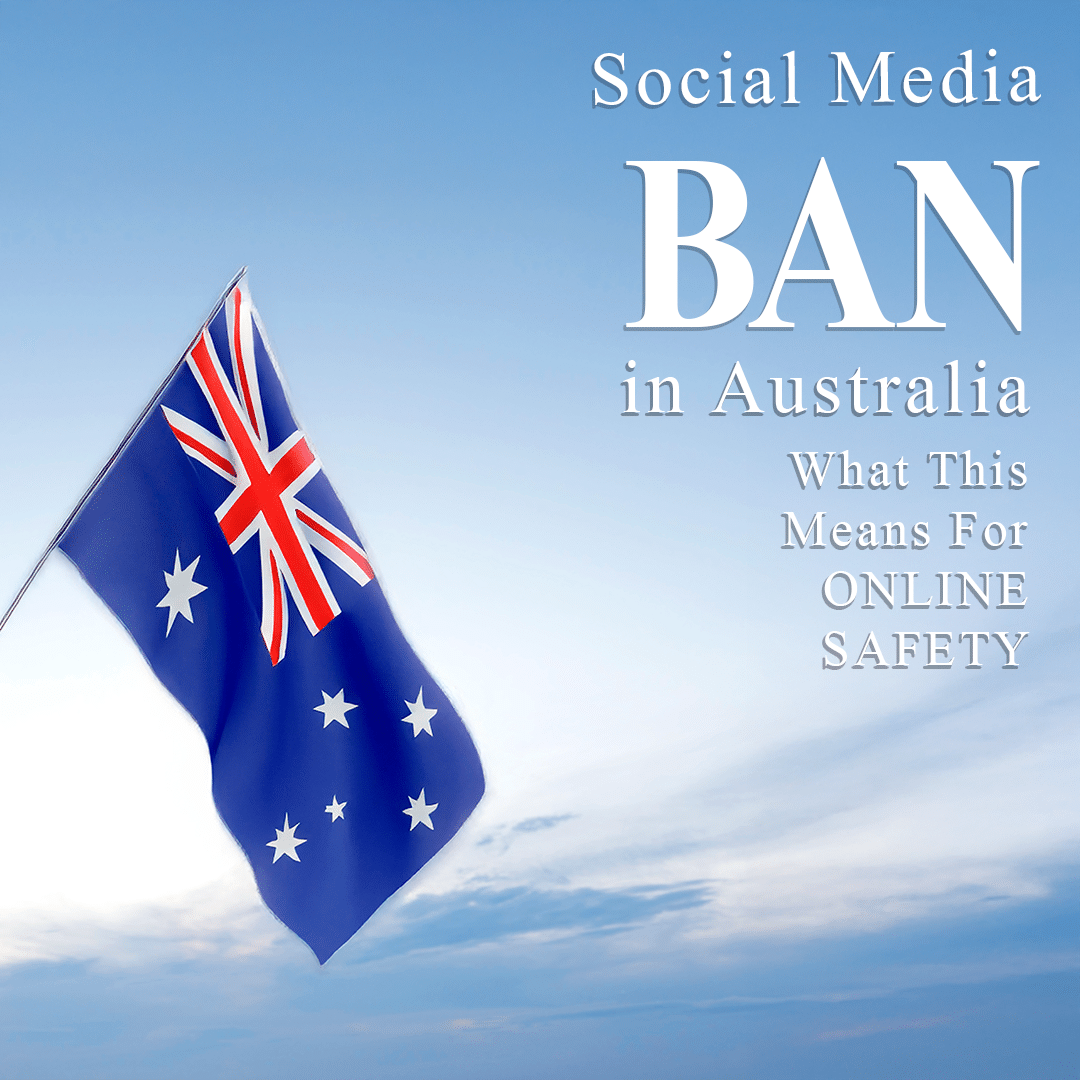History was made in Sydney on November 29th, 2024 when a new law was passed banning social media usage for minors. Introduced back at the beginning of November, the law is focused on protecting minors from online extortion, harassment, and other harm by banning usage of social media apps by children under the age of 16, regardless of parental consent.
In a press release issued by Australian Prime Minister Anthony Albanese(1), he stated that “The onus will be on social media platforms to demonstrate they are taking reasonable steps to prevent access”.
Details to Help Understand What the Ban Means.
While many countries including the United States, UK, and France have vowed to control social media use by children through legislation, Australia is the first to enact such a policy. Unfortunately, the policy is seen by many as rigorous and unyielding.
Under this new law, certain social media platforms are required to take reasonable steps to prevent children under 16 years of age from having an account (2). The applications listed in this bill included Facebook, Instagram, Snapchat, Reddit, X (formerly Twitter), and TikTok. Some platforms including YouTube and Google Messenger are seen as having exemptions from this ban due to their existing measures to create safer spaces for younger users.
- For additional information on how to prevent extortion and blackmail on these platforms, click here.
All non-exempt social networks will be required to implement new measures for age verification and removal of Australian minors from their apps within the next 12 months or face potential up to A$50 million.
This ban was implemented as a method to combat potential harms to minors in the AU which included sextortion. IN 2023 the AU’s Federal Police reported 3,600 cases of child exploitation/sextortion. This was paired with data from the AFP’s Operation Huntsman initiative, which found thousands of additional unreported cases of victimization of Australian teenagers by offshore organizations (3) to show the need for action at a federal level.
Can This Ban Help Prevent Online Extortion & Sextortion of Minors?
While it is difficult to prevent cybercriminals from committing crimes that target any individual, the ban hopes to reduce the number of cases through different tactics they hope major social platforms may implement to enforce this ban. This includes:
- Mandatory Age Verification: Platforms may use some form of ID check or secondary check by parents/guardians to confirm the ages of their current users. However, there is concern about the potential for data security issues with such sensitive information.
- AI & Behavioral Monitoring: These platforms may be encouraged to implement secondary AI tools capable of identifying and flagging unusual activity or content.
- Collaboration with Third-Party Verification Services: Platforms may partner with independent organizations that specialize in age and identity verification to facilitate compliance with the new law.
Each of the potential measures adds a slightly different nuance of both positive and negative scenarios, however, most do not expect the different applications to provide details on their planned compliance until mid-year 2025.
Protecting Minds or Limiting Freedom?
While some social platforms, have promised their support and compliance with the new legislation, there are some that are protesting that the Australian government have overstepped.
Social media company Meta has accused the Australian government of rushing to introduce the ban (4), while the owner of X, Elon Musk, has criticized the ban suggesting that it was “a backdoor way to control access to the internet by all Australians”.
Regardless of opinions, Australia has a global audience ready to watch and learn from how they implement these procedures.
How Adults May Benefit from This Ban.
Although not listed as a benefit for the implementation of the law, the requirement of age verification for users can be seen as a method to combat cases of extortion via catfishing. By monitoring users and requiring identification, these measures could be seen as a way to prevent cases of sextortion or romance fraud by use of fake profiles.
Will this put an end to all sextortion and online extortion? Unlikely. Many cybercriminals have already moved away from the use of fake profiles and begun to enlist forced labor through trafficking operations forced on running different extortion and fraud scams (5).
While these measures may be a step forward in combatting sextortion through fake profiles, it does not address the core issues which sextortionists use to exploit their victims.
Non-minors who are targeted by these scams will still need to enlist the help of law enforcement and accredited cybersecurity firms in response to falling for sextortion scams. We suggest first taking the time to report the cybercrime to Australian law enforcement.
Sources:
- Quote from Australian Prime Minister Anthony Albanese – Associated Press: https://apnews.com/article/australia-social-media-age-limit-e8259408c0b1456f41967decd474782a
- Details On New Nationwide Social Media Ban – Parliament of Australia: https://www.aph.gov.au/Parliamentary_Business/Bills_Legislation/bd/bd2425/25bd39
- Reports of Extortion & Fraud Victimizing AU Minors – Australian Federal Police: https://www.afp.gov.au/news-centre/media-release/afp-and-austrac-target-offshore-sextortion-syndicates-preying-australian
- Quotes from Meta & X on Australian Social Media Ban – The Guardian: https://www.theguardian.com/media/2024/nov/29/meta-australia-social-media-ban-response
- Report of Trafficking Rings Placing Forcing Victims Into Sextortion Scams – BBC: https://www.bbc.com/news/world-asia-68562643
DISCLAIMER: THIS POST IS FOR INFORMATIONAL PURPOSES ONLY AND IS NOT TO BE CONSIDERED LEGAL ADVICE ON ANY SUBJECT MATTER. DIGITAL FORENSICS CORP. IS NOT A LAWFIRM AND DOES NOT PROVIDE LEGAL ADVICE OR SERVICES. By viewing posts, the reader understands there is no attorney-client relationship, the post should not be used as a substitute for legal advice from a licensed professional attorney, and readers are urged to consult their own legal counsel on any specific legal questions concerning a specific situation.






